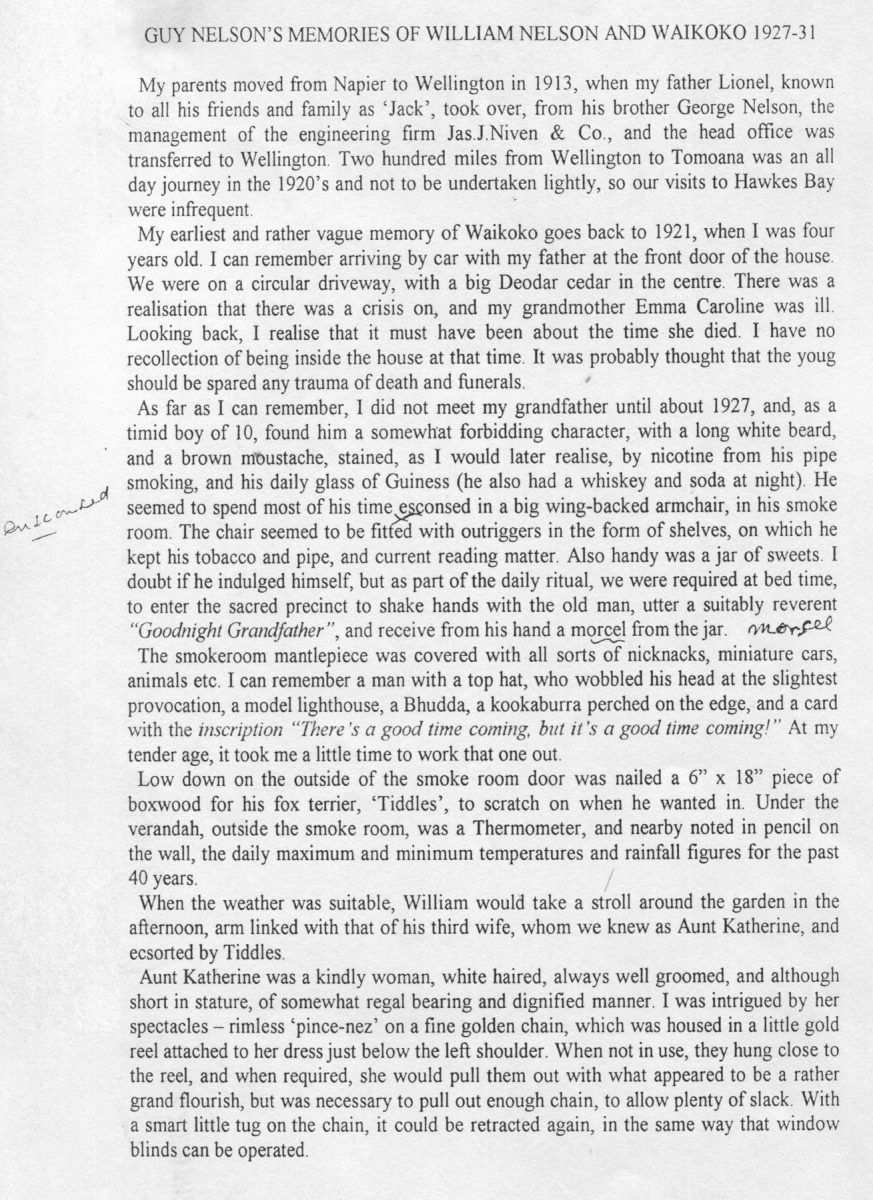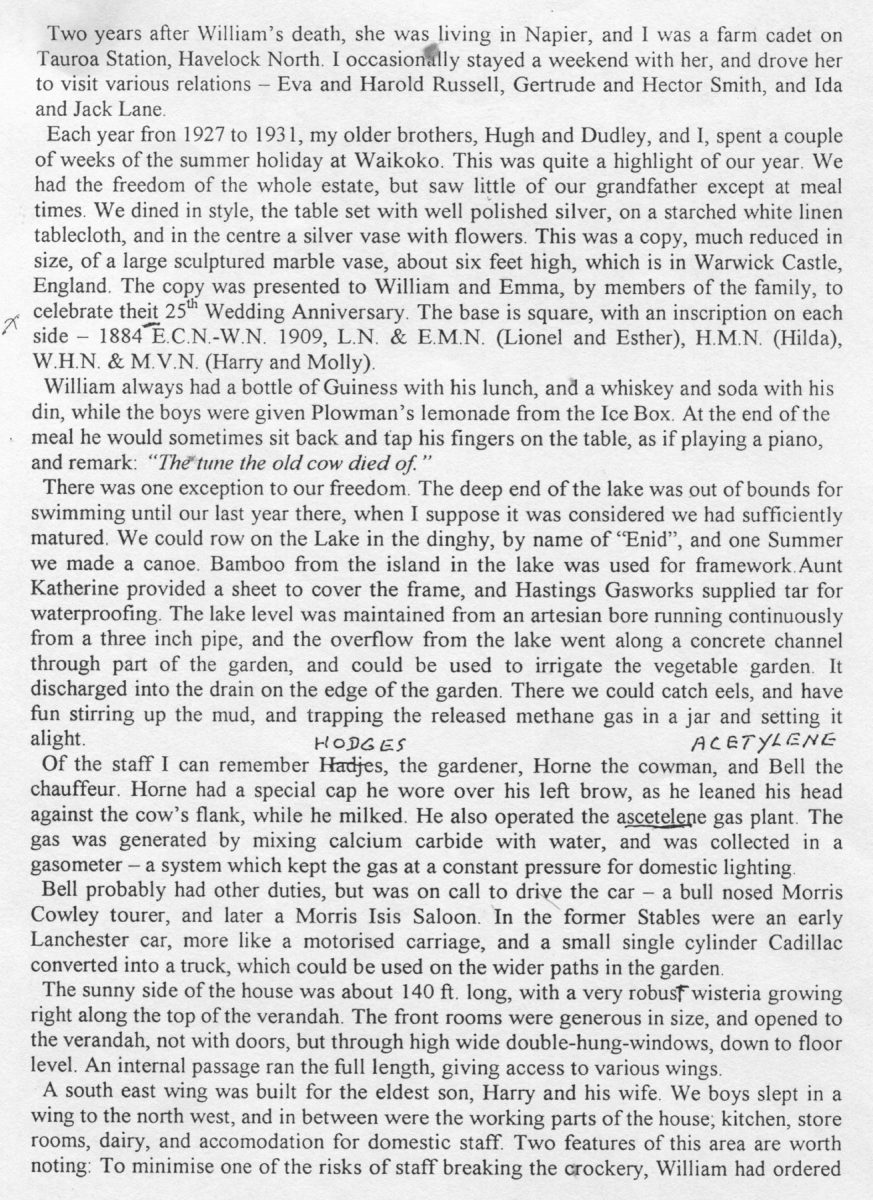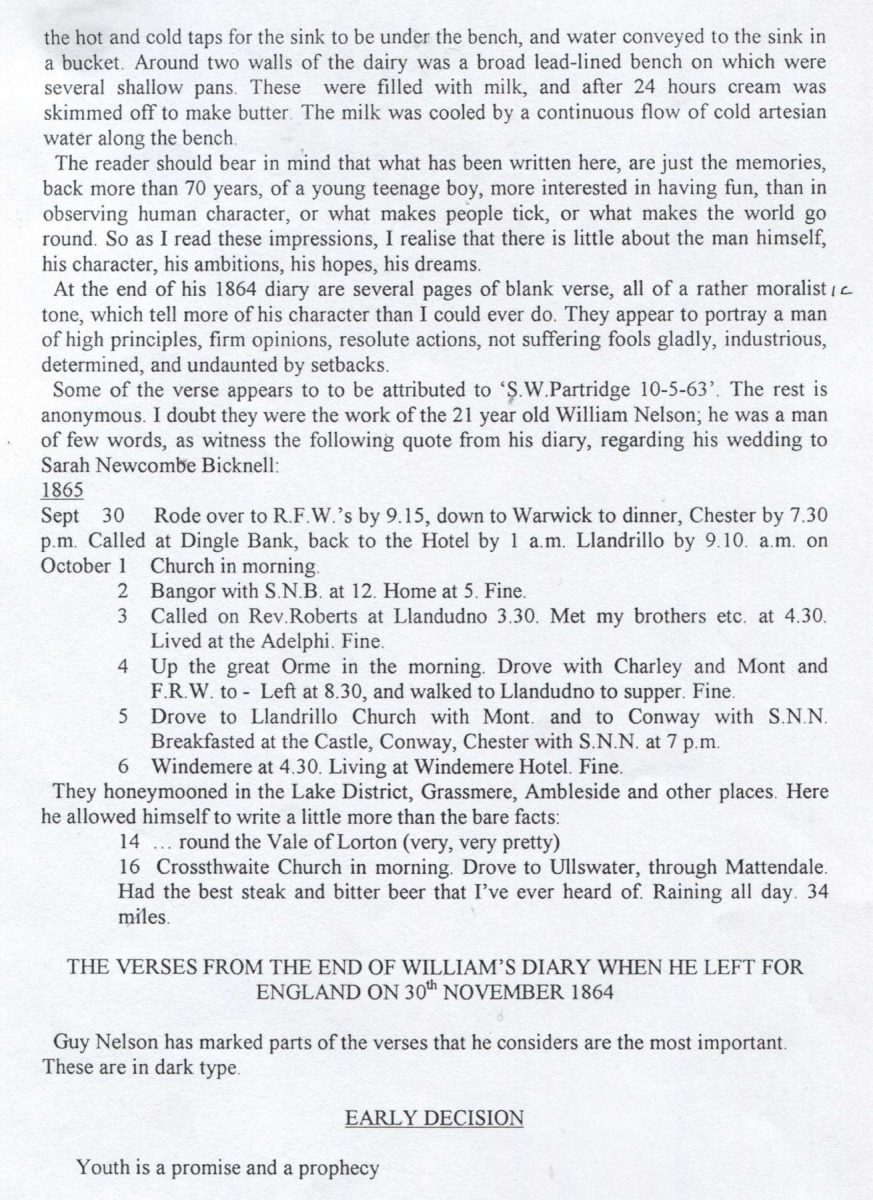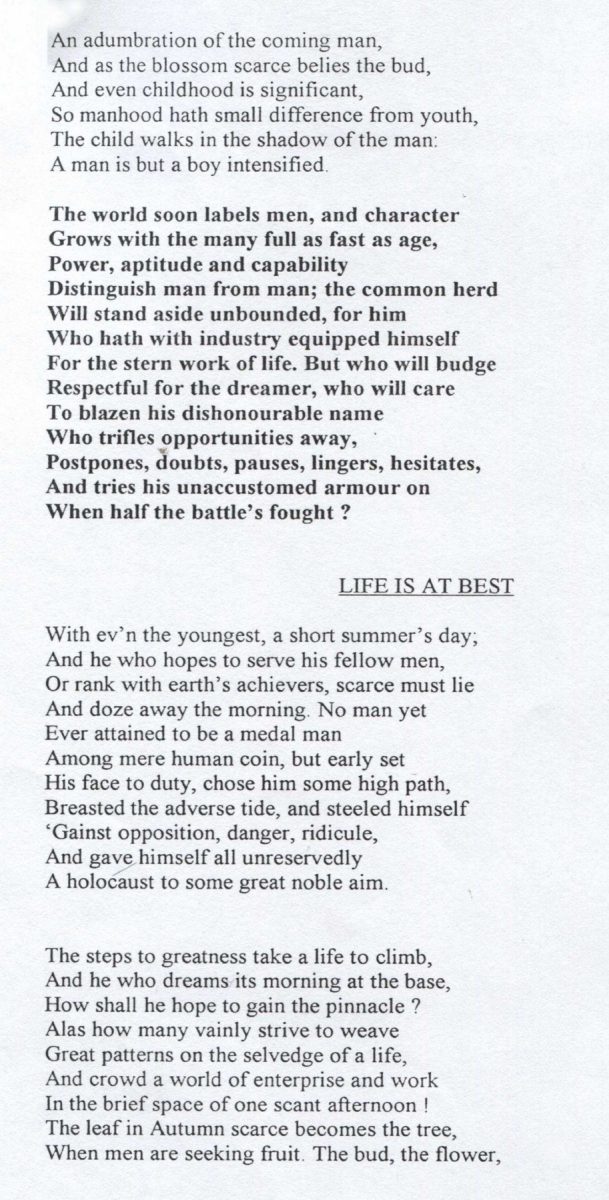GUY NELSON’S MEMORIES OF WILLIAM NELSON AND WAIKOKO 1927-31
My parents moved from Napier to Wellington in 1913, when my father Lionel, known to all his friends and family as ‘Jack’, took over, from his brother George Nelson, the management of the engineering firm Jas. J. Niven & Co., and the head office was transferred to Wellington. Two hundred miles from Wellington to Tomoana was an all day journey in the 1920’s and not to be undertaken lightly, so our visits to Hawkes Bay were infrequent.
My earliest and rather vague memory of Waikoko goes back to 1921, when I was four years old. I can remember arriving by car with my father at the front door of the house. We were on a circular driveway, with a big Deodar cedar in the centre. There was a realisation that there was a crisis on, and my grandmother Emma Caroline was ill. Looking back, I realise that it must have been about the time she died. I have no recollection of being inside the house at that time. It was probably thought that the youg [young] should be spared any trauma of death and funerals.
As far as I can remember, I did not meet my grandfather until about 1927, and, as a timid boy of 10, found him a somewhat forbidding character, with a long white beard, and a brown moustache, stained, as I would later realise, by nicotine from his pipe smoking, and his daily glass of Guiness [Guinness] (he also had a whiskey and soda at night). He seemed to spend most of his time esconsed [ensconsed] in a big wing-backed armchair, in his smoke room. The chair seemed to be fitted with outriggers in the form of shelves, on which he kept his tobacco and pipe, and current reading matter. Also handy was a jar of sweets. I doubt if he indulged himself, but as part of the daily ritual, we were required at bed time, to enter the sacred precinct to shake hands with the old man, utter a suitably reverent “Goodnight Grandfather”, and receive from his hand a morcel [morsel] from the jar.
The smokeroom mantlepiece was covered with all sorts of nicknacks, miniature cars, animals etc. I can remember a man with a top hat, who wobbled his head at the slightest provocation, a model lighthouse, a Bhudda, [Buddha] a kookaburra perched on the edge, and a card with the inscription “There’s a good time coming, but it’s a good time coming!” At my tender age, it took me a little time to work that one out.
Low down on the outside of the smoke room door was nailed a 6” x 18” piece of boxwood for his fox terrier, ‘Tiddles’, to scratch on when he wanted in. Under the verandah, outside the smoke room, was a Thermometer, and nearby noted in pencil on the wall, the daily maximum and minimum temperatures and rainfall figures for the past 40 years.
When the weather was suitable, William would take a stroll around the garden in the afternoon, arm linked with that of his third wife, whom we knew as Aunt Katherine, and ecsorted [escorted] by Tiddles.
Aunt Katherine was a kindly woman, white haired, always well groomed, and although short in stature, of somewhat regal bearing and dignified manner. I was intrigued by her spectacles – rimless ‘pince-nez’ on a fine golden chain, which was housed in a little gold reel attached to her dress just below the left shoulder. When not in use, they hung close to the reel, and when required, she would pull them out with what appeared to be a rather grand flourish, but was necessary to pull out enough chain, to allow plenty of slack. With a smart little tug on the chain, it could be retracted again, in the same way that window blinds can be operated.



















Do you know something about this record?
Please note we cannot verify the accuracy of any information posted by the community.